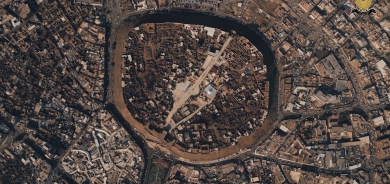Thousands of Kids Lost Parents in S Sudan Fighting

When the shooting began, Ajing Abiik and his two younger brothers ran for their lives. The shy 12-year-old with the serious expression is now among 90,000 people in one of South Sudan's largest camps of people who have been displaced since war broke out in December.
Their father was a soldier and died in fighting months ago. Now the three boys don't know where their mother is — or even if she is still alive.
Abiik and his brothers are far from alone. Thousands of other children in South Sudan have been separated from their families when the fled cities and villages in panic as indiscriminate gunfire cut down soldiers and civilians alike. The fighting in the world's newest country has left many of its youngest citizens either orphans or separated from their parents, increasing their vulnerability to sickness, malnutrition and recruitment by warring groups as child soldiers.
Some of the worst violence was in Jonglei state, where the battle for the city of Bor left thousands dead.
"We were in Bor when the fighting erupted. Everyone was running and shooting, I don't know if my mum is dead or alive," Abiik, wearing a dirty brown and gold polo shirt, told The Associated Press while sitting under a tree with dozens of other children in the camp along the shores of the Nile River. "We ended up here. We were afraid and just ran."
Abiik and his brothers were relatively lucky because they fled Bor with an aunt who now looks after them.
The United Nations has declared the South Sudan crisis a level 3 emergency which put the response on par with Syria as more than 800,000 people have been displaced, 3.2 million are in immediate need of food since the fighting that broke out in mid-December.
The U.N's leading agency for child protection, UNICEF, estimates that 17 percent of South Sudan's entire child population is without one or both parents.
Of the thousands of unaccompanied kids in U.N bases and camps across the country only 78 have so far been reunited with family through the use of mobile phones and questionnaires.
"For the younger children it is a real challenge," said Fatuma Ibrahim, UNICEF's chief of child protection. "The younger the child, the more complex. For babies it's a huge issue."
South Sudan's strong kinship system helps the agency trace family networks and subsequently find homes for orphans, often with extended families, said Ibrahim. There were a few examples of orphanages trying to rescue children and take them out of the country but most were well intentioned and stopped doing it when the U.N. intervened, said Ibrahim.
Here in Minkaman, United Nations agencies, Doctors Without Borders, Oxfam and a host of NGOs are urgently distributing food, water and sanitation in a race against time that in six weeks will see rains come and turn Minkaman from a dust bowl into a sea of mud.
Save the Children has registered more than 1,000 children separated from their parents and works alongside UNICEF tracing family connections, said the group's spokeswoman Helen Mould.
"In most cases their parents or other family members are still alive and desperate to be reunited with their missing children," she said.
Mould stressed that charities or orphanages should not try to take children whose parents are missing out of South Sudan, because instead of doing good they may do harm: "Moving children across borders is not only illegal, but prevents organizations like ours from being able to reunite these families."














